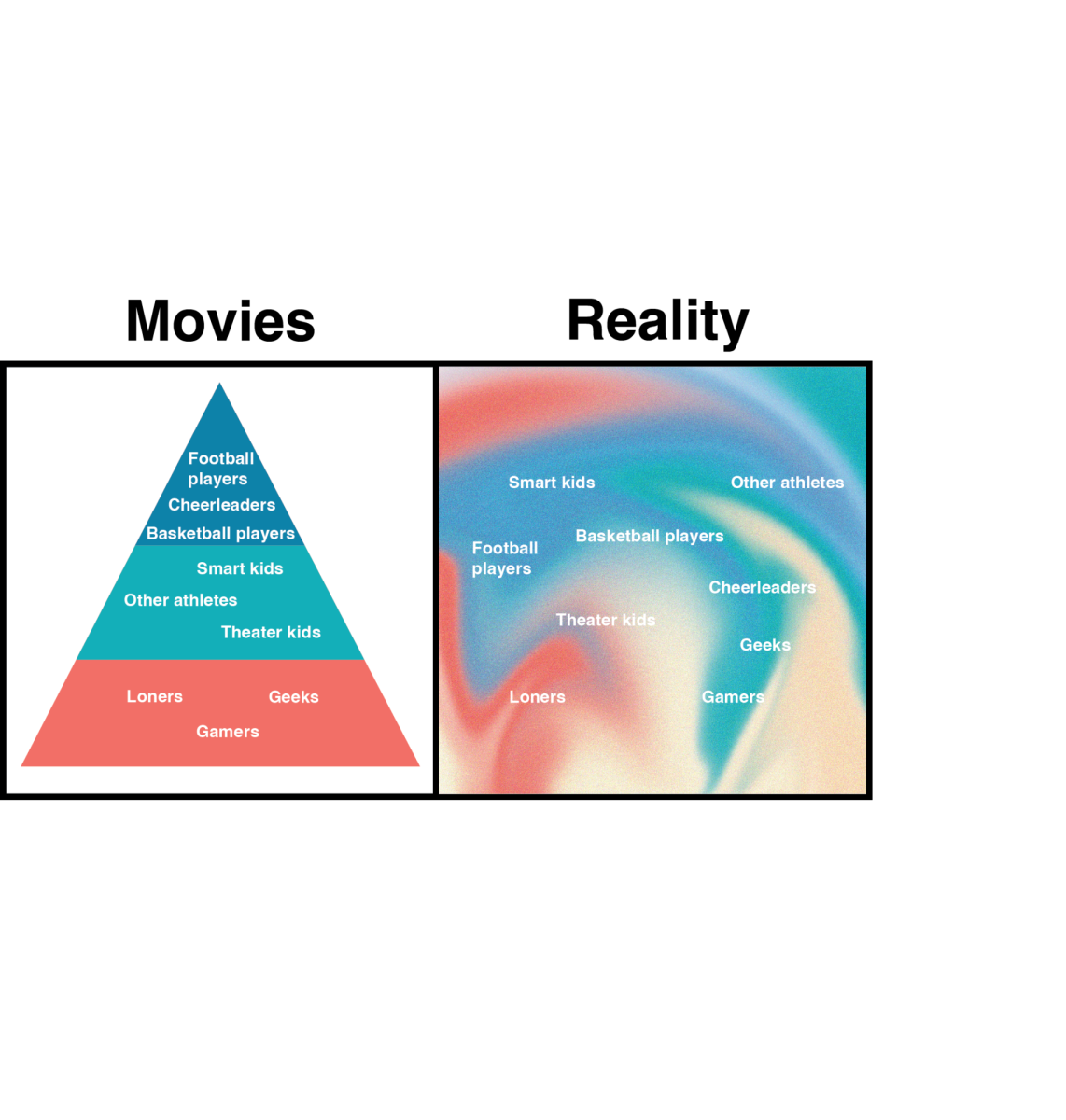A group of friends stand in line at a crowded restaurant when suddenly one of them hears the person in front speaking French, their native language. They initiate a conversation in French, while the rest of the group stands off to the side, listening uncomfortably to the foreign syllables.
Bilingualism or multilingualism is very common around the world, with some countries such as Switzerland or India even having multiple official languages. By most estimates, half of the world’s population can speak more than one language fluently, although the numbers vary by region. According to the 2010 U.S. Census data, only 20% of Americans speak a language other than English at home.
In the U.S., those who do speak languages other than English are often immigrants, like world language department chair Vanessa Spallone. French is her native tongue, but she speaks three other languages as well (English, Dutch and German).
“I feel like it cannot be compared with bilingualism in Europe, where I’m from,” Spallone said. “I think that the United States is so big that many Americans feel like they may never get a chance or desire to visit other countries,” Spallone said. “But, [the lack of bilingualism] can also be seen in a negative way [in] that there’s a lack of openness to other cultures.”
Although the U.S. doesn’t have an official language, English is by far the most commonly used. This can often translate to prejudice against those who speak a language other than English in public. Junior Isha Shukla, who speaks English and Marathi, has felt a certain expectation to only speak English in public.
“I’ve always been encouraged to not speak Marathi in [the U.S.],” Shukla said. “If I want to talk to my parents in public, I’m always told to speak in English instead of Marathi so that I don’t get any comments or backlash about it.”
As for why this prejudice might exist, Spallone said that speaking another language might come off as rude.
“When I’m in the U.S., I speak English,” Spallone said. “[If] I meet someone who’s French and I revert to speaking French to that person, … I’ve learned to quickly switch back to English if there are English speakers around us because it’s true that it’s not very inclusive to do that.”
It might seem that speaking the non-official language in any country would lead to a certain degree of alienation among those who don’t understand that language. However, Shukla said that she has had a different experience with that.
“I’ve also lived in India and, in India, people speak a lot of languages because there are so many regions and each region has its own distinct language,” Shukla said. “When people speak English in India, they don’t really face backlash because American culture is really prevalent in India whereas, in America, Indian culture isn’t really that prevalent.”
For those who weren’t raised bilingual or multilingual, learning another language might seem unnecessary, especially if your first language was English. According to Ethnologue, an online and in-print reference publication, English is the most commonly spoken language in the world. So the question is, why would you ever learn another one?
“I think it’s all about relationships,” Spallone said. “If you approach a person and you speak the person’s language, … right away the person has a big smile on their face. … As soon as you hear your language, you are attracted to that person, you want to speak to that person. I think it creates friendships much more easily.”
Beyond personal relationships, Shukla and Spallone said that speaking multiple languages is useful for a variety of jobs and enables you to learn about other cultures.
“Because I’m learning Spanish, if I become, say, a doctor in the future, I can communicate with patients in Spanish instead of having to hire an interpreter,” Shukla said. “Learning Spanish specifically has allowed me to learn a lot more about Mexican culture and the culture of other Spanish-speaking countries, which I think is really important. I think it makes everyone more open-minded and more aware of other customs and cultures.”
On the other hand, some people claim that speaking more than one language is detrimental to cognitive development, especially if more than one language is introduced early in childhood. Spallone, who spoke French to her sons from birth, disagrees with this assumption.
“There’s always a little bit of a worry and sometimes there’s a bit of a [speech] delay, but it’s temporary and it’s so beneficial in the end,” Spallone said.
At the end of the day, both Spallone and Shukla agree that learning a foreign language is very beneficial.
“Even if you’re not the best at it, I think it’s nice to try anything new,” Spallone said. “It’s not just the language. Hopefully when you are in a language class not only do you learn how to speak it and read it but you also learn about the culture. So, … perhaps you will still fall in love with that country and want to visit. … It may change your life forever.”























